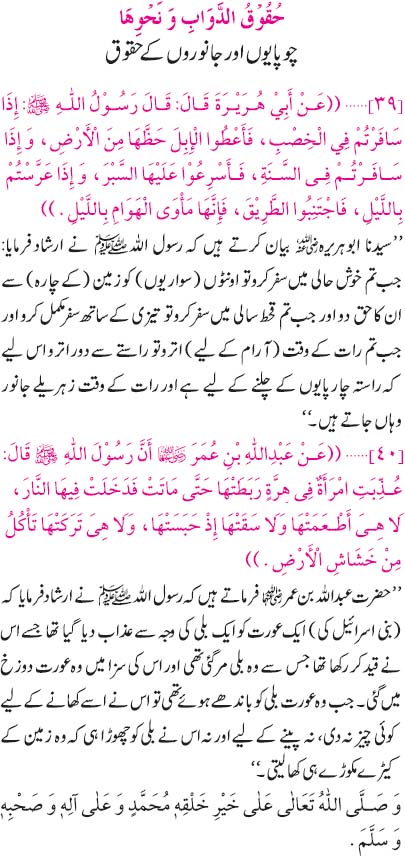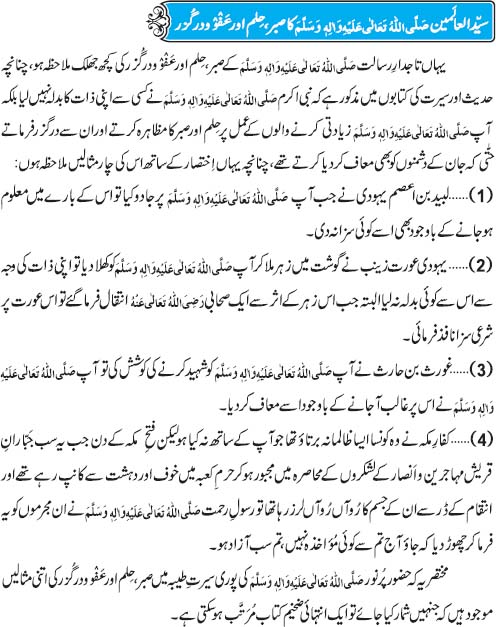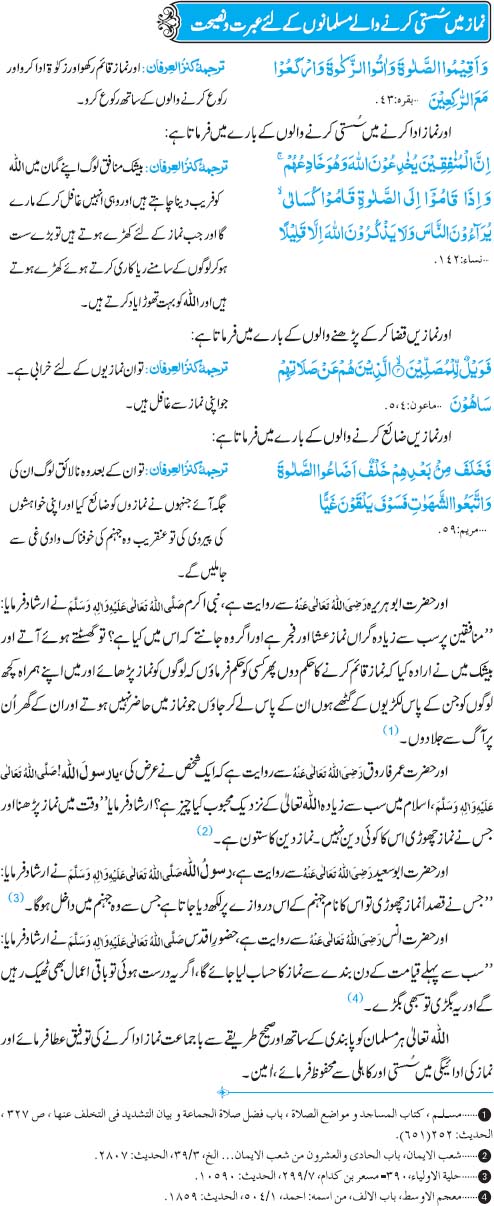
Janwaro Kay Haqooq
My Lord Build For Me A Home With You In Paradise
It was narrated that Ibn Abbaas (RA) said Prophet of Allah [Peace and Blessings of Allah be upon him]
drew four lines on the ground, then said: “Do you know what this is”? We said, “Allah and His Messenger know best.” Prophet [peace and blessings of Allah be upon him] said: “The Best of the women of Paradise are
1: Khadeejah bint Khuwaylid
2: Faatimah bint Muhammad
3: Aasiyah bint Mazaahim [the wife of Pharaoh]
4: Maryam bint Imraan ~ [may Allah be pleased with them all.]
Source: Ahmad # 2663. Classed as Saheeh by al-Albaani.}in Saheeh al-Jaami # 1135.
It was narrated from Anas (RA) that the Prophet (peace be upon him) said: “Sufficient for you among the women of the world are
Maryam the daughter of Imran.
Khadeejah bint Khuwaylid.
Faatimah bint Muhammad.
Aasiyah the wife of Pharaoh.”
(Source: Narrated and classed as Saheeh by al-Tirmidhi H # 3878)
Aasiyah bint Mazaahim (R.A)[The Wife of Pharaoh] The Qur`an has presented Aasiyah bint Mazaahim (R.A.) as one of the best role models for women. Aasiyah (r.a.) greatness is in the fact that although she was the wife of one of the most powerful, arrogant, and tyrant rulers of Egypt, she was able to see and accept the truth in the message of Prophet Musa [Alaihis Salam].
For her, wealth, beauty, or status was not the main criterion of human excellence; she realized that without faith in God, a human being has nothing. [ALLAH had chosen her to provide refuge to Musa [Alaihis Salam] when he was an infant.] When her maids brought the cradle of Musa [A.S.] from the river, she insisted to Pharaoh that she wanted to adopt that infant as a child. The wife of Pharaoh said. ‘Here is the joy of the eye, for me and for thee: slay him not. It may be that he will be use to us, or we may adopt him as a son.’And they perceived not what they were doing. {Source Qur’an Surat Al-Qasas (The Stories) 28 A #9 }
Aasiyah bint Mazaahim (r.a.) had declared her faith in the message of God after witnessing the miracle of Musa [Alaihis Salam] in the Court of the Pharaoh; and after witnessing the death of another believing woman under torture. Pharaoh tried to turn her away from the God of Moses and sought her mother’s help. But Aasiyah (r.a.) refused to reject the God of Moses. Pharoah said ‘Believe ye in Him before I give you permission? Surely this must be your leader who has taught you magic Be sure I will cut off your hands and feet on opposite sides, and I will have you crucified on trunks of palm trees: so shall ye know for certain, which of us can give the more severe and the more lasting punishment’.
{ Source: Qur’an Surat Ţaha (Ta-Ha) 20 A # 71 }
On Pharaoh’s order, she was tortured to death. The Qur’an sets her as an example for believers to stay away from evil and sin despite the full assault of the devil: Allah sets forth an example for those who believe- the wife of Pharaoh who said ‘ My Lord, build for me with You a house in Heaven and save me from the Pharaoh and his doings, and save me from an unjust people.’
[Source Qur’an Surat At-Tahrim (The Prohibition) 66 A # 11]
A Lil Note: In this Lady, we see the example of supreme sacrifice by marrying Pharaoh, Aasiyah bint Muzahim became the Queen of Egypt, she gained everything that she wanted in this worldly life from the materialistic point of view: the best of clothes, food, palaces, jewels, servants and maids, etc. But she sacrificed all that to be closer to Allah {Azza Wa Jall} And that is why we see her included by the Prophet [Peace be upon him] in the list of the four women who attained the level of perfection.
Islam Mein Samaji Taluqat Ki Ahmiyat

Islam Mein Samaji Taluqat Ki Ahmiyat
Hadiths On Remembrance Of Allah
Which status would be higher than having your humble person appreciated and mentioned by Allah Almighty to a gathering of high-esteemed Angels?
That is only one of the many valuable advantages you gain through frequent remembrance of Allah ( dhikr Allah ). The special position of this easy act of worship is frequently emphasized by the Prophet (peace and blessings be upon him) who “used to remember Allah all the time” (Abu Dawud)
Reviewing rewards promised for those who remember Allah should fill us with pity for all the hours we waste without seizing these amazingly easy opportunities. The following collection reveals the significance of this beautiful type of worship and the great reward you can reap through it.
Best Deed
1. Abu Ad-Darda’ (May Allah be pleased with him) narrated that the Prophet said: “Shall I not inform you of the best of your actions, the purest in the sight of your Lord, which raises your rank to the highest, which is better for you than spending gold and silver, better than meeting your enemy so that you strike at their necks and they strike at yours?’ They replied: ‘Yes, indeed,’ and he said: ‘It is the remembrance of Allah.” (At-Tirmidhi)
A Special Status
2. Abu Hurayrah (May Allah be pleased with him) narrated that the Prophet said: “Allah says, “I treat My servant as he hopes that I would treat him. I am with him whenever he remembers Me:
if he thinks of Me, I think of him;
if he mentions Me in the company, I mention him in an even better company.
if he draws near to Me a hand’s span, I draw near to him an arm’s length;
if he draws near to Me an arm’s length, I draw closer by a distance of two outstretched arms nearer to him; and if he comes to Me walking, I go to him running.” (Al-Bukhari and Muslim)
Follow the Shari’ah Zone
3. Abu Musa Al-Ash’ari (May Allah be pleased with him) narrated that the Prophet said: “The similitude of someone who remembers his Lord and someone who does not is like that of the living and the dead. ” (Al-Bukhari)
4. Abdullah ibn Busr (may Allah be pleased with him) narrated that One of the Prophet’s Companions said, “O Messenger of Allah. I am overwhelmed by the so many injunctions of Islam. So tell me something to which I may hold fast.” The Prophet replied, ” Keep your tongue wet with the remembrance of Allah. ” (At Tirmidhi)
Abundant Forgiveness
5. Abu Hurairah (may Allah be pleased with him) also reported that the Prophet (peace and blessings be upon him) said: He who says, ‘ Subhan-Allahi wa bihamdih ‘ (Glory and praise be to Allah) one hundred times a day, his sins will be obliterated even if they are equal to the extent of the foam of the sea. (Al-Bukhari and Muslim)
6. Zaid ibn Harithah narrated that the Prophet (peace and blessings be upon him) said: Whosoever says: ‘ Astaghfirullaha al-`Azeem al-ladhi la ilaha illa howa Al-Hayy al-Qayyum wa atubu illayh (I ask forgiveness of Allah, the Magnificent, than Whom there is no deity, the Living, the Sustainer of existence, and I turn to Him in repentance,)
his sins will be forgiven even if he should have run away from the battlefield (while he was engaged in fighting for the Cause of Allah, which is a grave sin in Islam). (Abu Dawud and authenticated by Al-Albani)
Huge Reward
7. Anas ibn Malik narrated that the Prophet said: ” Whoever prays Fajr Prayer in the congregation, and then sits and remembers Allah until the sun rises, then (after a while) prays two rak’has , he will gain a reward equal to that of making perfect Hajj and `Umrah. [The Prophet repeated the word “perfect” thrice.] (At-Tirmidhi)
8. Abu Hurayrah reported that the Prophet said: He who repeats after every prayer:
Subhan Allah ( Glory be to Allah ) thirty-three times,
Al-hamdu lillah (praise be to Allah) thirty-three times,
Allahu Akbar (Allah is Greatest) thirty-three times;
and completes the hundred with:
La ilaha illallahu, wahdahu la sharika lahu, lahul-mulku wa lahul-hamdu, wa Huwa `ala kulli shai’in qadir
(There is no true god except Allah. He is One and He has no partner. His is the sovereignty and His is the praise, and He is Omnipotent) will have all his sins pardoned even if they may be as large as the foam on the surface of the sea. (Muslim)
9. Abu Ayyub Al-Ansari (may Allah be pleased with him) reported that the Prophet (peace and blessings be upon him) said: He who utters ten times: La ilaha illallahu, wahdahu la sharika lahu, lahulmulku wa lahulhamdu, wa Huwa ala kulli sha’in qadir
(There is no true god except Allah. He is One and He has no partner. His is the sovereignty and His is the praise, and He is Omnipotent), he will have a reward equal to that for freeing four slaves from the progeny of Prophet Isma`il. (Al-Bukhari and Muslim)
10. Abu Hurayrah (May Allah be pleased with him) narrated that the Prophet said: ” There are two statements that are light on the tongue, heavy on the scales, and beloved to the Most Merciful: Subahana Allahi wa bihamdih
Subhana Allahi Al-`Azeem (Glory and praise be to Allah, Glorified is Allah, the Most Great.) ” (Al-Bukhari)
By Muhammad Fathi
Syed ul Alameen (PBUH) Ka Sabar, Hilm Aur Afw-o-Darguzar

Syed ul Alameen (PBUH) Ka Sabar, Hilm Aur Afw-o-Darguzar
Five Types Of Martyrs
[Sahih Bukhari : Volume 1, Book 11, Number 624] Narrated Abu Huraira (Radi Allah Anhu): Allah’s Apostle (sal-allahu-alleihi-wasallam) said:
“While a man was going on a way, he saw a thorny branch and removed it from the way and Allah became pleased by his action and forgave him for that.”
Then the Prophet (sal-allahu-alleihi-wasallam) said, “Five are martyrs:
1. One who dies of plague,
2. One who dies of an abdominal disease,
3. One who dies of drowning,
4. One who is buried alive (and) dies
5. And One who is killed in Allah’s cause.”
The Prophet (sal-allahu-alleihi-wasallam) further said, “If the people knew the reward for pronouncing the Adhan and for standing in the first row (in the congregational prayer) and found no other way to get it except by drawing lots they would do so.
And if they knew the reward of offering the Zuhr prayer early (in its stated time), they would race for it.
And they knew the reward for ‘Isha’ and Fajr prayers in congregation, they would attend them even if they were to crawl’.”
Quran Samajhne Ke Liye Sunnat Ki Zarorat

Quran Samajhne Ke Liye Sunnat Ki Zarorat
What Is Faith? What Is Islam? When Will The Hour Be Established?
What is Faith?
What is Islam?
When will the Hour be established?
[Sahih Al-Bukhari: Volume 1, Book 2, Number 47] Narrated Abu Huraira (Radi Allah Anhu): One day while the Prophet (sal-allahu-alleihi-wasallam) was sitting in the company of some people, (The angel) Gabriel came and asked:
“What is faith?” Allah’s Apostle (sal-allahu-alleihi-wasallam) replied, ‘Faith is to believe in Allah, His angels, (the) meeting with Him, His Apostles, and to believe in Resurrection.”
Then he further asked, “What is Islam?” Allah’s Apostle (sal-allahu-alleihi-wasallam) replied, “To worship Allah Alone and none else, to offer prayers perfectly to pay the compulsory charity (Zakat), and to observe fasts during the month of Ramadan.”
Then he further asked, “What is Ihsan (perfection)?” Allah’s Apostle (sal-allahu-alleihi-wasallam) replied, “To worship Allah as if you see Him, and if you cannot achieve this state of devotion then you must consider that He is looking at you.”
Then he further asked, “When will the Hour be established?” Allah’s Apostle (sal-allahu-alleihi-wasallam) replied, “The answerer has no better knowledge than the questioner. But I will inform you about its portents when a slave (lady) gives birth to her master. When the shepherds of black camels start boasting and competing with others in the construction of higher buildings. And the Hour is one of five things which nobody knows except Allah. The Prophet then recited: “Verily, with Allah (Alone), is the knowledge of the Hour–.” (31. 34)
Then that man (Gabriel) left and the Prophet (sal-allahu-alleihi-wasallam) asked his companions to call him back, but they could not see him. Then the Prophet (sal-allahu-alleihi-wasallam) said, “That was Gabriel who came to teach the people their religion.” Abu ‘Abdullah said: He (the Prophet) considered all that as a part of faith.
Our Lord! grant us good in this world and good in the hereafter, and save us from the chastisement of the fire.
Namaz Mein Susti Karnay Waley Musalmano Kay Liay Ibrat Aur Naseehat

Namaz Mein Susti Karnay Waley Musalmano Kay Liay Ibrat Aur Naseehat
Ignoring The Signs Of Allah
وَمَا تَأْتِيهِم مِّنْ آيَةٍ مِّنْ آيَاتِ رَبِّهِمْ إِلَّا كَانُوا عَنْهَا مُعْرِضِينَ
There comes to them no sign from the signs of your Lord, but they turn away from it. (Yasin, 36:46)
The Prophetﷺ called surah Yasin the heart of the Qur’an because it encapsulates the essential message of the Qur’an and the signs in the universe that point to its truth in a very powerful way.
Yet the signs cannot benefit those who are bent on ignoring them. After mentioning various signs of Allah (dead earth that comes to life with rain, night and day and sun and moon, ships, and other means of travel), it points out the state of self-imposed ignorance whereby human beings refuse to learn from the signs. This nonchalance results in foolish argumentation from them, mentioned in the next two ayahs. (Why should we feed the poor, God could have fed them if He wanted. And when is this resurrection after death going to take place?) The answer is to shake them out of this frivolity by giving a glimpse of the Hereafter where the sinners will be separated from the pious. The difference between the former’s doom and the latter’s bliss is not something that any sensible person can brush aside lightly.
The charge of ignoring the signs applies to those who pay no attention to them as well as those who study them in great depth but with a closed mindset that has already decided that this is a creation without a Creator and a design without a Designer. Their study does not lead them to God, because of its prior assumptions and predetermined conclusions. This applies to almost all studies of science even in the Muslim classrooms today because they just ape the methods and philosophies of ignorant science leaders. This is a similar message to what was given in surah Yusuf and should be a point of much concern for Muslim educators and scientists today.
Did Man Create gods?
قَالَ أَتَعْبُدُونَ مَا تَنْحِتُونَ
He answered: “Do you worship something that you (yourselves) have carved, (Al-Ṣaffat, 37:95)
Atheists, new and old, have declared that man created God. With this, they laughingly assure themselves that they have satisfactorily answered the question as to who created man. But this absurdity has a basis, which the Qur’an points out here. Man, in fact, has created gods. Whether it is the physical statues of deities or the false ideas about gods, they are all human creations. They result when we surrender to our own lusts, desires, and wishes. That however does not negate the existence of the one True God who created us. Atheism took root in the non-Muslim world, where its leaders only saw the false gods of human creation and decided that that was the entire story. In contrast, those who read the Qur’an with an open mind will come in conversation with the one True God. Worship has always been a common practice in all human societies. But we have two options for it. We can worship the one True God who created us or we can worship the false gods of our own creation – including the “no God” of atheism.
Doubt the Hereafter? Answer This.
أَمْ نَجْعَلُ الَّذِينَ آمَنُوا وَعَمِلُوا الصَّالِحَاتِ كَالْمُفْسِدِينَ فِي الْأَرْضِ أَمْ نَجْعَلُ الْمُتَّقِينَ كَالْفُجَّارِ
Shall We treat those who believe and do righteous deeds the same as those who commit mischief on the earth? Shall We make the God-fearing equal to the sinners? (Ṣad 38:28)
This is the question that everyone who rejects or harbors doubts about the Hereafter must answer. Allah is just and justice demands the existence of the Hereafter where everyone will be rewarded or punished for their good and bad deeds. Those who reject or doubt the Hereafter necessarily believe in an unjust world.

